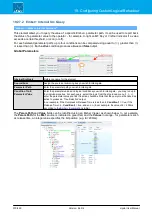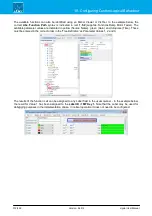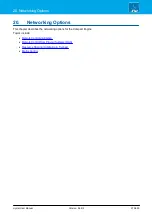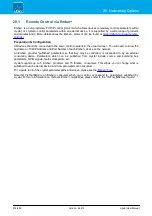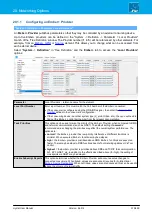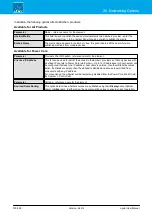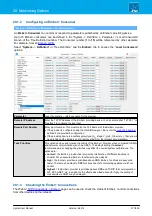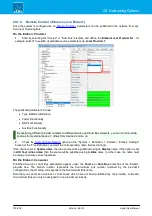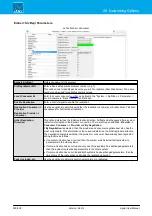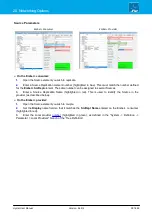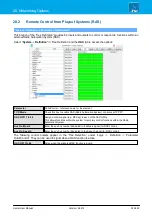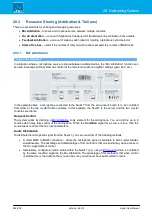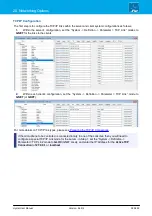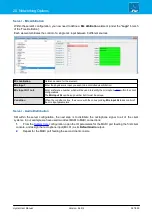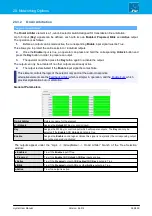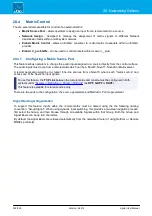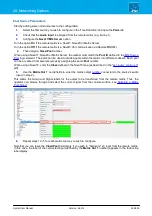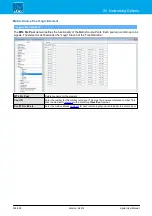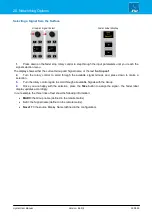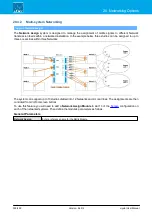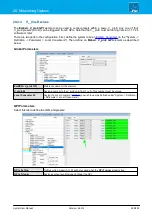
crystal User Manual
Version: 6.6.0/2
384/459
20. Networking Options
20.3
Resource Sharing (Arbitration & Tielines)
There are several tools for sharing and managing resources:
·
Mic Arbitration
- to share a microphone source between multiple consoles.
·
On Air Arbitration
- a one out of eight switch designed for transmission line arbitration from a matrix.
·
Feedback Arbitration
- a one out of sixteen switch ideal for creating a telephone hybrid selector.
·
Stereo Tie Lines
- useful if the number of IOs you wish to share exceeds the number of MADI links.
20.3.1
Mic Arbitration
"Logic -> Mic Arbitration"
In a situation where a microphone source is shared between multiple studios, the “Mic Arbitration” function can
be used to manage which system has control of the remote microphone amplifier settings (gain, 48V, etc.).
In the example above, a microphone connected to the Nova17 from the announcer's booth is to be controlled
from either of the two crystal Studio consoles. In this example, the Nova17 is the server and the two crystal
consoles are clients.
Network Control
The system works by defining a
Logic element for the microphone. You can define up to 8
sources which may take control of the microphone. When the
Condition
signal for a source is true, then the
source takes control of the mic input parameters.
Audio Distribution
To distribute the microphone signal from the Nova17, you can use either of the following methods:
·
A direct MADI to MADI connection – where the microphone signal is available to both crystal Studios
simultaneously. The advantage and disadvantage of this method is that one studio may have access to
the mic signal without control.
·
Alternatively, configure an audio switch within the Nova17 (e.g. using a
) which is controlled
by the same condition signal as the Mic Arbitration. The advantage of this method is that when control
is switched so is the audio so that you can be sure you will never have audio without control.

